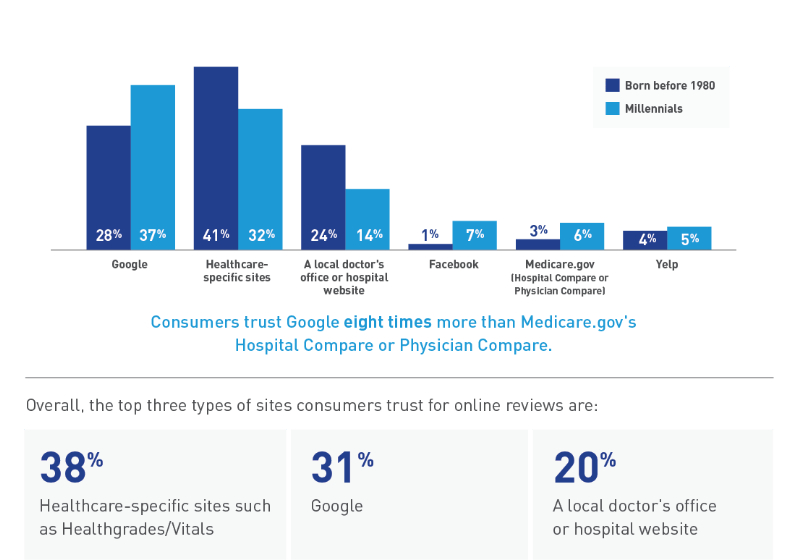The challenge of certified contents on the web is still far from being solved in the healthcare domain. Million of people everyday use Internet to search for health information but the reliability of the information itself is a critical issue.
No doubts the web is useful and powerful to get people in touch and communicate to each other, share information, even find the best local restaurant but when we are looking at finding the right course of action to heal our health problems, blindly trusting information found on the web could have a disastrous boomerang effect.
It is alarming that only a small percentage of people searching for health-related information online also check the reliability of the source and of the information they find.
The most common (and dangerous) behaviour is:
- discovering something is wrong
- doing a web search (Google or Bing or any other of the top search engines)
- trusting the first results that confirm our self-made diagnosis.
The most common pitfalls when internet or a social channel are the primary source of information are:
- confusing the symptoms of one disease with another (most of the time a more serious one)
- not considering the source of information (top results are not necessarily based on relevance and quality, but often on marketing money)
- trusting outdated content not in line with the latest medical researches
- thinking that it is enough reading experiences of peers instead of accessing official specific medical information reviewed by health professionals.
In late 2017 Reputation.com launched a Healthcare Consumer Survey in the U.S. to understand how consumers use the internet to look for healthcare services online. One of the interesting finding was that Google and health insurance websites are the two most important tools used for searching healthcare services and information online. The trust is based on ratings and reviews that lead the patient to choose one healthcare provider instead of another. It is clear that online reviews are an incredibly important part of the decision making process.

There is clearly a huge challenge (and opportunity) for anyone working in the Healthcare sector to make sure that:
- accurate information is made available across the web
- consumers have what they need to make informed decisions about their health needs
- there is an improved focus on accredited healthcare sites adopting quality information criteria.
There is still uncertainty in what defines quality of internet results in the healthcare space, companies like Google and Yahoo! or Bing are competing to be the first to guarantee relevance and reliability. Google says content that is considered “quality” needs to demonstrate expertise, authoritativeness and trustworthiness (E-A-T). This is so key for Google that they set up a team of Search Quality Evaluators rating published content on the web. Countless algorithms review content and rank it.
But what happens when it comes to content quality? What makes a high quality page?
A high quality page should definitely have:
- high level of Expertise, Authoritativeness, and Trustworthiness (E-A-T).
- high quality content in terms of size and presentation
- detailed information about who is responsible for the website or the specific piece of data
- clear customer service information
- positive website reputation
Building trust takes effort and time but is feasible and definitely a must for any company.
Our company is fully committed to ensure reliable health and medical information on the internet, that’s why we are also a certified member of HONcode, the Health on the Net Foundation Code of Conduct. The HONcode certification is an ethical standard aimed at offering quality health information.

We’re also SSL-HTTPS secure format accredited which means we work with an innovative digital signature and real-time content verification system.
We aim to support companies in the Health sector to address one of the main issue: providing accurate, reliable and credible information. If you’re one of those facing it, ask us how we can help you Contact us